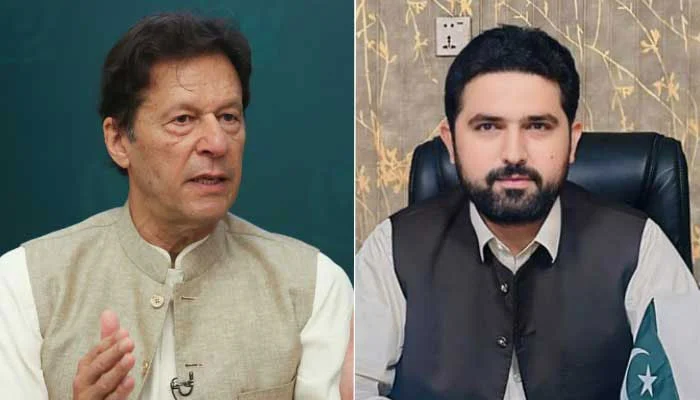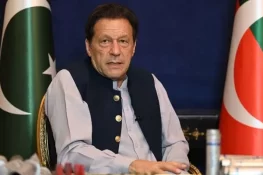PTI Founder Grants Suhail Afridi Full Control in Khyber Pakhtunkhwa
In a significant political development, the founder of Pakistan Tehreek-e-Insaf (PTI) has reportedly given Suhail Afridi complete authority over party organization and government affairs in Khyber Pakhtunkhwa (KP).
Recently, the newly elected KP Chief Minister met Imran Khan in Adiala Jail, underscoring close coordination between the provincial leadership and the party founder (read full report here). The move is being viewed as part of a broader strategy to reshape the party’s internal structure and rejuvenate its provincial leadership.
According to party insiders, the PTI founder has allowed Afridi to form his cabinet independently, without external interference. This decision marks a shift from previous practices, where key provincial matters were often influenced by central advisory councils.
No Separate Advisory Councils for Punjab and KP
Sources close to the party revealed that the PTI founder has decided against forming separate advisory councils for Punjab and Khyber Pakhtunkhwa. Instead, regional leadership will be empowered to manage political and organizational matters autonomously.
This approach, insiders suggest, aims to decentralize power and strengthen grassroots-level decision-making. The move also reflects a growing recognition within PTI that provincial leaders need more control to address local challenges effectively, especially as the party navigates a complex post-election landscape.
Alongside Afridi in KP, Aliya Hamza has reportedly been entrusted with similar authority in Punjab, allowing her to oversee political and organizational affairs without direct oversight from the central leadership.
Focus on Youth Inclusion in the Provincial Cabinet
Soon after receiving directives from the PTI founder, Suhail Afridi began active consultations to revamp the provincial cabinet. According to reports, he has already given a green signal to young members of the Insaf Students Federation (ISF)—the youth wing of PTI—to join the cabinet.
This move indicates a deliberate effort to infuse new energy and ideas into the provincial government. If implemented, it could lead to a significant reshuffling of senior figures who have dominated KP’s political scene for years.
Observers note that PTI has historically drawn strong support from young voters. By bringing in young Members of the Provincial Assembly (MPAs), the party appears to be aligning its leadership structure with its popular base.
Political analysts also suggest that empowering the youth within PTI could help restore the party’s image as a movement for change and reform, particularly after internal divisions and leadership challenges in recent months.
Uncertainty Surrounds Some Senior Figures
Despite the momentum surrounding Suhail Afridi’s leadership, no specific instructions have been issued regarding senior PTI figures Barrister Saif and Muzzammil Aslam. Their future roles within the party and provincial setup remain uncertain.
This omission has fueled speculation about possible internal realignments, with some suggesting that senior leaders may be gradually sidelined to make way for a new generation of leadership.
Party insiders describe the decision as part of a strategic transition plan—an effort to prepare PTI for long-term political survival and to reconnect with younger, more dynamic segments of society.
Analysts See Strategic Restructuring
Political commentators view these developments as a sign that PTI’s founder is seeking to reassert control over the party’s direction, particularly after months of political turbulence. By delegating authority to emerging leaders like Suhail Afridi and Aliya Hamza, he appears to be promoting localized leadership models rather than centralized decision-making.
Analysts note that such restructuring could help PTI regain organizational discipline and rebuild trust among its supporters, many of whom have grown frustrated with internal power struggles. However, they also warn that the rapid replacement of senior figures could risk alienating experienced policymakers who have long shaped the party’s governance strategy.
A New Chapter for PTI’s Provincial Politics
If the proposed changes go ahead, Khyber Pakhtunkhwa could soon witness one of its most significant cabinet overhauls in recent years. The inclusion of ISF-backed youth MPs signals a generational shift within PTI—one that prioritizes innovation, accountability, and grassroots engagement.
Whether this experiment succeeds will depend on how effectively Suhail Afridi manages the delicate balance between renewal and continuity within the party ranks. For now, the message from the PTI founder is clear: it’s time to empower new leaders and redefine the political future of Pakistan’s provinces.















